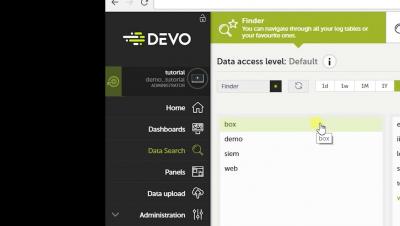Security | Threat Detection | Cyberattacks | DevSecOps | Compliance
Logging
Monitoring Windows Machines with Devo
Logsign products and services
Suggestions to business organizations regarding security operations center and log management?
Who is Logsign?
In-house v. Cloud-based Log Management
Data generated by various devices connected in a network and operations being carried out on them is called as log data and we have already discussed why log management is important, considering the exponentially increasing number of attacks and their sophistication. Further, in the last blog post, we dealt with questions that you must your cloud-based log management service provider.
How Can Logs Be Useful?
From performance information to fault and intrusion detection, logs can provide you a lot more things with regard to what is happening on your systems and network along with the timestamps and order of the events. Logs can be invaluable for resource management, instruction detection, and troubleshooting. More importantly, logs can provide an admissible evidence for forensic purposes in the aftermath of an incident. The following sections provide a deep dive into some use-cases of logs.
Questions You Should Ask Your Cloud-Based Log Management Service Provider
The log management service is often outsourced to a third-party service provider due to the complexity of the process involved in the collection of logs. When a business plans for outsourcing log management to a service provider, business requirements must be given a top-most priority. To start with, a business must identify the goals it desires to accomplish through log management. After locating the required resources, the decision-making body should select a vendor for availing its services.
Why Is Logging Ecosystem So Important?
The logging ecosystem or a logging infrastructure is the set of all components and parts that work together to generate, filter, normalize, and store log messages. The purpose of this logging system is to use logs for solving particular problems. For example, the logs can help to find out the source of the attack. This article defines each component of logging ecosystem and illustrates how they work.
Why is Log Management More Important Than Ever?
It has now become public knowledge that every business organization is under constant threats in the ever-evolving cyberspace. In order to secure their assets and maintain a strong defence against the actors with malicious intent, an organization takes a number of steps such as installing appropriate software and hardware, implementing security controls, etc. One such step is log management which plays a crucial role during a security incident.







